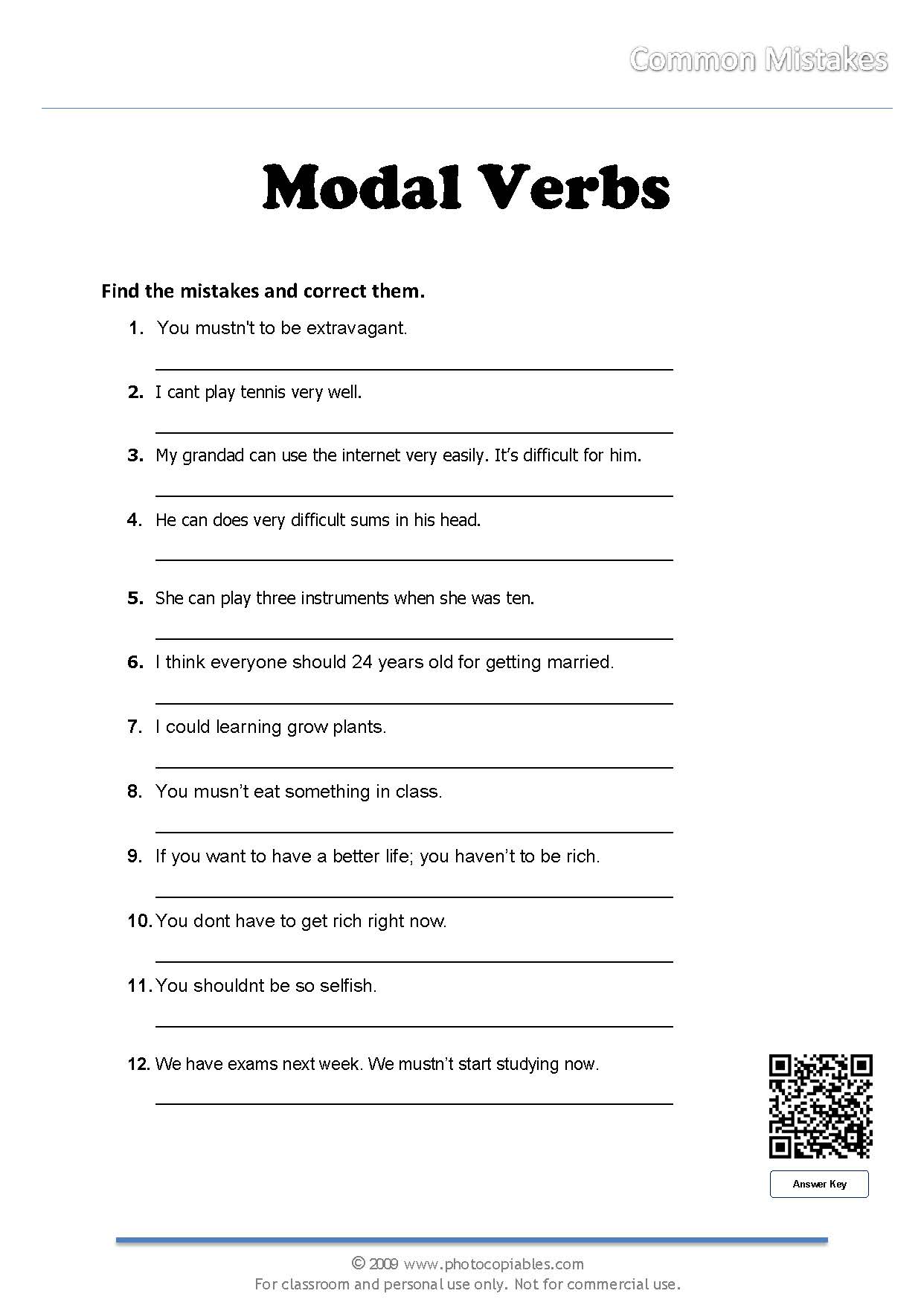

Tom: Yeah, I’ve got to go now and make a start on it. Tom: Okay, I can come up with something I guess. Maggie: Yeah, I can give you some suggestions but you mustn’t use the same title as anyone else in our class.

You can just use one of those designs to make your own poster.
MODAL VERBS EXERCISES FREE
Use the 'Hint' button to get a free letter if an answer is giving you trouble.

There are lots of templates on the internet. Gap-fill exercise Fill in all the gaps, then press 'Check' to check your answers. You don’t have to make the poster from scratch and it doesn’t have to be a work of art. Tom: Yeah I know but it looks a bit difficult…

Then, you have to design a poster for a play about them – the Mohicans – for the theatre. Maggie: First, you should read the article that Mrs. Modal verbs are used to express functions such as ability, advice, permission, obligation,possibility and prohibition. Tom: I’ve had so many other things to do. She probably won’t accept projects after tomorrow. You can also click on the '' button to get a clue. Maggie: The deadline is tomorrow you know so you have to submit it tomorrow. Fill in all the gaps, then press 'Check' to check your answers. Maggie: Hi Tom, have you finished your homework? Decide if the statements are true or false according to the reading text. 'must' would be particularly common in writing, especially in British English, and 'have to' works as well and has the same meaning.This is the online version of the modal verbs reading text worksheet. So in the (B) sentences, both 'must' and 'have to' are possible. For example, if we are speaking about a new film and I tell you 'You must see it', this doesn't mean you are obliged to see it - it's a way that I can express my opinion - in this case in the form of a strong recommendation. 'you must do something' has a similar meaning, but it used more often in written rules and instructions (particularly in British English - this use is less frequent in American English) and is also used to express your opinion about an action. Students look at the pictures and the different uses of modals written under them. 'you have to do something' means it is necessary to do it or that you are obliged to do it. MODAL VERBS - EXERCISES (B&W VERSION INCLUDED) - ESL worksheet by Katiana. Please have a look there and if anything is still not clear after that, you are welcome to ask us again. I believe that all of your questions about the (A) sentences are answered on the Permission and Suggestions and obligations pages in this section. But 'My father makes me do my homework' clearly shows that I do my homework. For example, 'I must do my homework' means I need to do my homework, but it doesn't mean that I did it. Notice that it's not clear whether we actually do the action that is considered necessary (or not necessary) - the rule is that we wear a mask on the bus, but maybe we don't actually do that.Ī sentence with causative 'make' is similar in that it expresses obligation, but it also shows that the action was performed. 'You must wear a mask on the bus') or that it is necessary not to do something ('mustn't', e.g. You can read a bit more about 'must' and 'mustn't' in the Obligations section of our Suggestions and obligations page, but basically they express the idea that it is necessary to do something ('must', e.g.


 0 kommentar(er)
0 kommentar(er)
